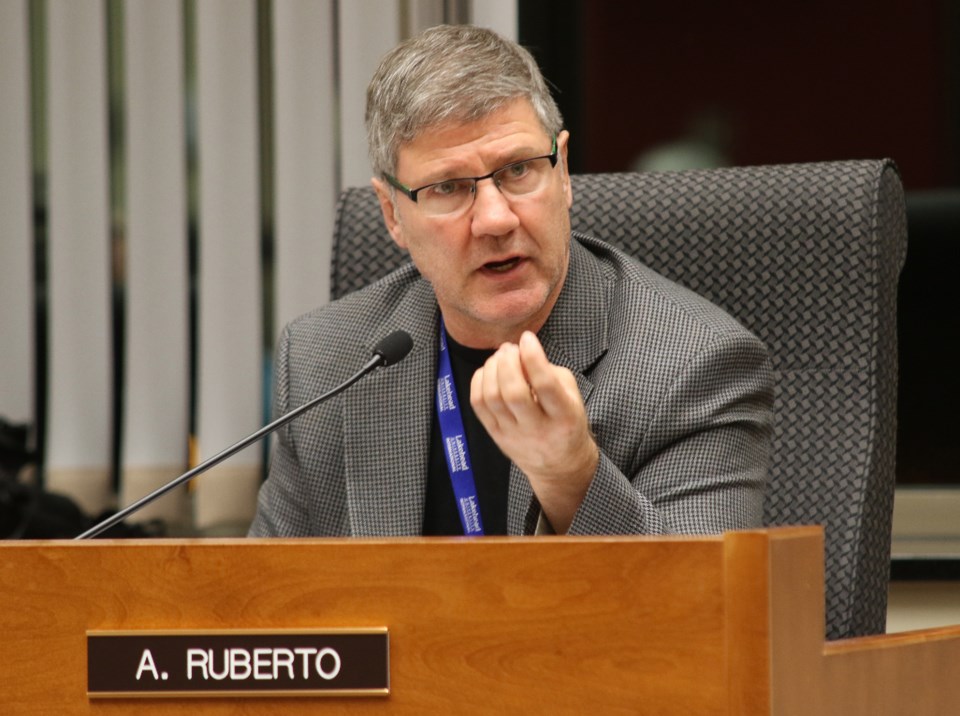THUNDER BAY – With his proposal to investigate a loitering bylaw unanimously defeated less than a month ago, Thunder Bay city councillor Aldo Ruberto is returning to city hall with markedly different ideas for addressing issues of drug use and addiction.
A new motion from the long-time councillor, set to be debated Monday, proposes bold harm reduction strategies like more safe consumption sites, safe supply initiatives, and advocacy for decriminalizing personal possession of hard drugs.
If passed, the motion would see city administration report back on the feasibility of a municipal pilot project incorporating those strategies, and would have the city lobby provincial and federal governments for more action and funding to address addictions and homelessness.
Ruberto said the proposal stems from conversations with drug users and dealers, police, and social service agencies, and is built on the success of similar initiatives in the city and beyond, including Thunder Bay’s lone safe injection site, PATH525.
“Thank God it’s there – we could use four more, probably,” the councillor says.
A memo accompanying Ruberto’s motion calls on the city to provide a “safe outdoor space for individuals to use drugs,” as well as a mobile safe injection vehicle “to bring a safe site to the user on the streets.”
While he acknowledges the steps would be controversial, he points out the Canadian Association of Chiefs of Police has already endorsed decriminalizing simple possession of hard drugs - and maintains the growing crisis, especially related to opioids, requires drastic action.
“People say, are you crazy? Well, they’re doing [drugs] already," he says. “You have to think outside the box, because what we’re doing right now isn’t working.”
The inadequate response of the provincial and federal governments to a growing addictions crisis is leaving people behind and “costing [the city] a fortune,” Ruberto argues. He urges residents to contact their MPPs and MPs to demand action – but in the meantime, he believes the city needs to step up.
“While the City of Thunder Bay has done more that it is required to do as a municipality with work like Crime Prevention, Drug Strategy and the Indigenous and Inclusion Office, I am putting forward a few actions that we can take as a regional center in conjunction with First Nations participation, Federal and Provincial governments,” his memo states.
In addition to creating more safe consumption sites and examining a safe supply program for hard drugs modelled on managed alcohol programs, Ruberto’s motion would have city administration examine the possibility of a program along the lines of the Bear Clan pilot project in Kenora.
That project recently received $800,000 in federal funding for community patrol efforts to support people with issues of homelessness, mental health, and addictions. It’s a model Nishnawbe Aski Nation has suggested should be replicated across the region.
Lastly, the motion calls for the city to lobby upper levels of government for decriminalization of hard drugs for personal use, a basic income program, the development of safe supply programs, increased funding to address the opioid crisis, for supervised consumption initiatives, and for housing.
Ruberto’s motion will be debated by city council Monday evening. If passed, it would require a report back from city administration before the end of October.
